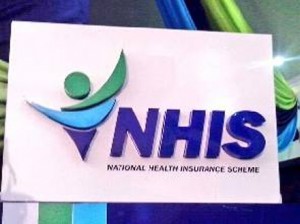Research advocates for increase of NHIS premium
 A research conducted by the Navrongo Health Research Centre in the Kassena-Nankana Municipal and the Kassena –Nankana West of the Upper East Region is advocating for the increase of the National Health Insurance Scheme premium to help improve upon the health services delivery.
A research conducted by the Navrongo Health Research Centre in the Kassena-Nankana Municipal and the Kassena –Nankana West of the Upper East Region is advocating for the increase of the National Health Insurance Scheme premium to help improve upon the health services delivery.
This was revealed at a stakeholders meeting which brought together traditional and religious leaders, health directors, medical doctors, education directors, the district assembly , health providers and opinion leaders among others, aimed at brainstorming on how to help improve upon the operation of the scheme.
Speaking at the function on Saturday, Maxwell Dalaba, a researcher of the Centre, stated that the research which was carried out in the Kassena-Nankana Municipal and Kassena West also revealed that both clients and service providers often abused the scheme.
The research indicates that most clients under the pretext that they were sick visit health facilities to collect drugs for their friends or relatives. Others also visit more health facilities than expected.
The stakeholders proposed that clients and health service providers who are caught abusing the system should be sanctioned to serve as a deterrent to others. According to the research, majority of the people had proposed for an increase of the scheme’s premium to enable it provide quality health services to clients.
The Municipal Director of the Scheme, Mr Ayamga Agana Clement, disclosed that Scheme(NHIS) had enrolled children under the school feeding programme in the Kassena-Nankana Municipal and Kassena-Nankana West Districts in the Upper East Region into the scheme.
He stated the scheme had also enrolled the beneficiaries of the school uniform and free sandal programme, all under the exempt policy.
The Municipal Director, who informed the stakeholders that the scheme had also begun the implementation of the capitation process in the two Districts, indicated that it had as of July this year begun enrolling clients into their preferred primary providers.
He impressed upon the clients to choose health facilities that were closer to their residence and expressed the hope that with the full implementation of the capitation, coupled with the Biometric registration, the abuse of the scheme by clients and health providers would be eliminated.
Mr Ayamga mentioned the lack of office space and power outages as some of the challenges militating against the smooth operation of the scheme and said despite the challenges; the scheme had issued 65,000 biometric ID Cards to clients.
The Regional Director of the Scheme, Mr Sebastian Alagpulinsa, expressed worry about long queues formed by clients to access the cards saying that plans were far advanced to find a lasting solution to the problem.
He appealed to health providers to desist from co-charging clients and gave the assurance that the Regional Directorate of the Scheme was doing everything possible to ensure that they were paid on time.
Source: GNA
